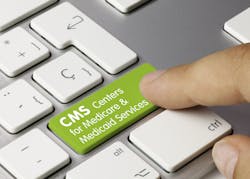The Centers for Medicare & Medicaid Services (CMS) is seeking public input on the idea of CMS creating a national directory of healthcare providers and services.
CMS notes that healthcare directories can serve as an important resource for patients, helping them locate providers who meet their individual needs and preferences and allowing them to compare health plan networks. Directories also have the ability to facilitate care coordination, health information exchange, and public health data reporting.
However, the healthcare directory landscape is fragmented, resulting in patients sometimes struggling to find up-to-date information about providers in their network and providers facing redundant and burdensome reporting requirements to multiple databases. Directories often contain inaccurate information, rarely support interoperable data exchange or public health reporting, and are costly to the healthcare industry.
In 2018, CMS added fields to the National Provider and Payer Enumeration System (NPPES), which assigns HIPAA-mandated unique identifiers for health care providers. for providers to submit digital contact information. A robust directory built on modern interoperable technology could greatly improve the availability of provider data and spur electronic health data exchange.
CMS is seeking public input on the idea of a directory that could serve as a “centralized data hub” for all healthcare directory and digital contact information with accurate, up-to-date, and validated data in a publicly accessible index, developed through streamlined information submission from providers. CMS is seeking comment on whether consolidating those data could help improve access to care and patient choice by making it easier for patients to identify, compare, and locate providers who meet their specific needs and preferences, such as those related to office accessibility, languages spoken, or other data.
CMS also is seeking comment on how a CMS-led directory could reduce directory maintenance burden on providers and payers by creating a single, centralized system, promoting real-time accuracy for patients. Using modern interoperable technology would allow payers to update their own directories seamlessly from a single directory through an application programming interface (API). It could also make data available in a format that would ease health data exchange between providers and improve public health reporting, a need highlighted by the COVID-19 pandemic. Finally, a CMS-led directory could directly support network interoperability through the Trusted Exchange Framework and Common Agreement (TEFCA).
“Easy access to accurate and useful provider directory information is critical for patients trying to find health care that best meets their individualized needs and preferences,” said CMS Administrator Chiquita Brooks-LaSure, in a statement. “CMS is seeking comment on how a National Directory of Health Care Providers and Services could better serve patients and reduce unnecessary burden placed on providers to maintain dozens of separate directories. We look forward to hearing from our stakeholders on the need for a single source for this information for the entire health sector.”
Feedback obtained in response to the RFI will aid CMS’ understanding of the current landscape of healthcare directories, as well as information useful to CMS when considering creating such a directory. The RFI is open for a 60-day public comment period ending Dec. 6, 2022.


